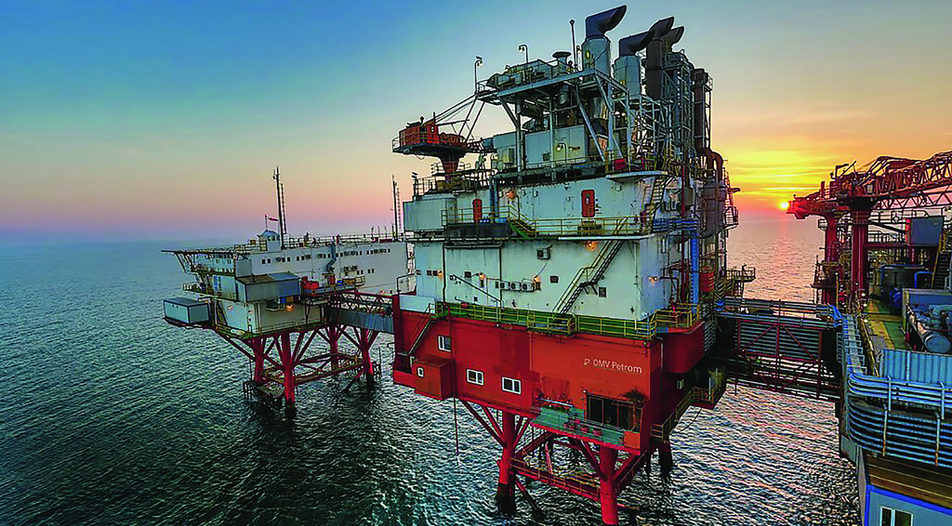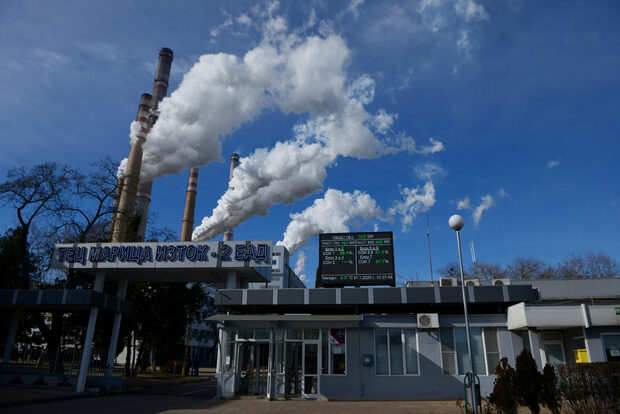Offshore drilling for oil and gas is a risky venture. The likelihood to find a rich deposit that is feasible to develop is about 30% and the chance is even smaller in the Black Sea. That is why the triumph of President Recep Tayyip Erdogan after the discovery of Turkey's biggest offshore natural gas deposit earlier this year is understandable. The Tuna-1 block in the western part of the Black Sea contains 320 billion cubic meters (bcm) of gas with production planned to start in 2023.
According to Erdogan, this is the biggest deposit in Turkey's history and certainly the biggest one found in the Black Sea so far. Nevertheless, given that consumption in the country is expected to top 55 bcm a year, the deposit may cover the domestic needs for less than six years. But the discovery has two other important aspects.
The first is Turkey's political position with regard to its neighbours and the energy market. The gas discovery is a strong trump card in Ankara's striving to reduce its huge dependence on energy imports from Iran, Iraq and Russia. It is also important because it comes after dozens of unsuccessful attempts to find hydrocarbons in the Black Sea. The discovery raises hopes not only for Turkey but for neighbouring states as well and especially for Bulgaria: Tuna-1 is close to the Bulgarian area in the Black Sea and Romania to the north has also discovered offshore deposits.
As for now, there is only one concession awarded for production of oil and gas in the Bulgarian Black Sea area, in the northern field of Galata, while the other blocks, Khan Kubrat and Khan Asparuh, are in the exploration phase. Some experts believe that Turkey's discovery will increase investors' interest in the Black Sea and bring in many new exploration companies. Others are not so optimistic after years of fruitless attempts.
The lonely producer
Currently, there are 18 concessions for oil and gas production in Bulgaria and only one of them is in the Black Sea: Petroceltic Bulgaria has the right to produce gas from the Galata shallow-water field near Varna, as well as from the neighbouring Kaliakra, Kavarna and Kavarna-East deposits. Petroceltic Bulgaria's data from end-2016 show that the proven and probable reserves at the first three deposits are assessed at 566 mcm. In 2010, the company discovered approximately 272 mcb of gas in Kavarna-East. For comparison, the annual gas consumption in Bulgaria is about 3 bcm.
According to data of gas transmission system operator Bulgartransgaz, Petroceltic Bulgaria stopped production in November 2017. Kavarna-East was expected to be put into operation in 2018 but there is no information if that has happened. The company's last published report shows that production from Galata was resumed in the second half of 2018 at a "steady, though low rate."
At the same time, Energy Ministry data show that two of the concessions, for Kaliakra and Kavarna-East, have already expired in 2017 and 2019 and the Kavarna concession is due to expire this year. That leaves only the Galata concession, which is valid until 2026. The company has been trying for years to get a license and turn Galata into a gas storage facility. Currently, Bulgaria has a single such facility located in Chiren, in the country's northwestern part.
Bulgaria's three blocks
Bulgaria has issued seven permits for oil and gas prospecting and exploration and two of them are in the Black Sea: the blocks of Khan Asparuh and Khan Kubrat (previously known as Silistar). The government was planning to launch a permitting procedure for another block, Khan Tervel, which is located between the other two, but there has been no progress so far.
The first permit for prospecting and exploration for oil and gas in the Black Sea was granted for Khan Asparuh offshore block in 2012 to a consortium of OMV Offshore Bulgaria (30%), Total E&P Bulgaria (40%), which is also the operator, and Repsol Bulgaria (30%). The block covers an area of some 14,000 sq. km and is adjacent to the Turkish and Romanian blocks where deposits were discovered.
After drilling the first exploration well in 2016 Total said it had discovered oil but did not elaborate. So far the companies have drilled three exploration wells in the block. An extensive 3D seismic campaign was finalized in May 2020 and the data are currently being processed. Earlier this year, Repsol Bulgaria withdrew from the project by selling its stake to its two partners in the project. Thus, OMV Offshore Bulgaria and Total E&P Bulgaria increased their stakes to 42.86% and 57.14%, respectively. Recently Romanian oil and gas group OMV Petrom controlled by Austria's OMV Group, which is exploring the neighbouring Neptun Deep block in the Romanian section of the Black Sea, acquired OMV Offshore Bulgaria's share in Khan Asparuh. After a few extensions of the permit, the consortium now has the right to conduct exploration works in the block until 2022.
In the Black Sea, explorations are also underway in Khan Kubrat block, which covers an area of some 6,900 sq. km. The permit was issued to Shell in 2016 for a period of five years. The company had completed 2D and 3D seismic studies and last spring drilled an exploration well. No results have been officially announced yet.
Australia's independent oil and gas company Woodside acquired 30% interest in the project in late 2018 and Spain's Repsol joined in with another 20% in early 2019, so currently, Shell holds 50%.
The first attempt to explore the block was made before Shell. In 2011, Lederbel BG received a permit but in 2014 the Supreme Administrative Court revoked it for the reason of being issued in violation of the law.
The government was planning to open a permitting procedure for another offshore block, Khan Tervel, by the end of this year. It covers an area of 4,000 sq. km and is located south of Khan Asparuh and east of Khan Kubrat. Some exploration works were conducted there between 2002 and 2007 by Britain's Vintage Petroleum International. In 2013 and 2015 the government tried to find a company to explore the block but no offers were filed.
One of the reasons was the demanding conditions posed by the government towards potential license holders. The very geography was another reason: the depth and features of the sea bottom required an expensive exploration program, which made the viability of the project questionable.
Experts, however, say the chance is not irreparably lost. "Every discovery such as the new Turkish deposit is a good sign because it attracts investors' interest. The Black Sea has been long considered to be poor in gas. The news will now make more companies show interest in drilling," analyst Martin Vladimirov of Sofia-based Center for the Study of Democracy said.
In his words, the news of the Turkish discovery should be viewed with optimism but not so euphorically.
"Sometimes it takes 10 to 15 years from discovery to real production of oil and gas. This requires complex processes and the technology is expensive and risky. Companies take into account the prices of oil and gas on the international markets to assess the feasibility of such an enterprise. Nevertheless, that is good news for Bulgaria," he added.
Neptun: no myth but reality
One of the key uncertainties about the Turkish project is when production can start there. Ankara was categorical it would try to have gas produced within three years. But that is overoptimistic. Romania's Neptun, which covers an area of 7,500 sq. km, is, for now, the most promising block in the Black Sea.
Exploration works there are conducted by OMV Petrom and US ExxonMobil. In 2012 the companies discovered potential reserves of 84 bcm of natural gas but the feasibility study of the project is still ongoing.
Nevertheless, the Romanian deposit, as well as the Turkish project in Tuna-1 give reasons to believe that potential production there will affect gas prices. "I am optimistic about the exploration activities in the Bulgarian sector of the Black Sea. Romania and Turkey have already discovered gas. Obviously, there are quantities, the question is when we will have production," Ivan Hinovski, chairman of the Bulgarian Energy and Mining Forum, said.
"That will have a huge effect on Bulgaria, even though the resources are not Bulgarian. The new Turkish field will probably push down Gazprom's prices and we have to be happy about that. They can even start exporting the gas, which will further diversify sources," he believes. However, he cautions, that may be an advertising campaign. "Let us wait and see what the drilling will show because I think there is something too precipitate in the announcement of the Turkish deposit," Hinovski added.
Bulgarian energy expert Vasko Nachev is more reserved. "The chances to discover certain amounts of gas are increasing but that does not mean that the next exploration program will reach the levels registered by Turkey or Romania," he says, stressing that it is absolutely wrong to make parallels between different deposits.

Offshore drilling for oil and gas is a risky venture. The likelihood to find a rich deposit that is feasible to develop is about 30% and the chance is even smaller in the Black Sea. That is why the triumph of President Recep Tayyip Erdogan after the discovery of Turkey's biggest offshore natural gas deposit earlier this year is understandable. The Tuna-1 block in the western part of the Black Sea contains 320 billion cubic meters (bcm) of gas with production planned to start in 2023.
According to Erdogan, this is the biggest deposit in Turkey's history and certainly the biggest one found in the Black Sea so far. Nevertheless, given that consumption in the country is expected to top 55 bcm a year, the deposit may cover the domestic needs for less than six years. But the discovery has two other important aspects.












